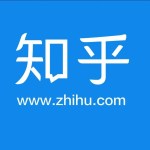How-to & Go-to Guides of All Things Around China.
China’s coffee industry has undergone a seismic transformation, evolving from a niche market to a global powerhouse. With domestic consumption surging by 167% in the past decade and 5.6 million bags of coffee imported annually , Chinese coffee giants like Luckin Coffee, Cotti Coffee and Starbucks China are reshaping supply chains through vertical integration, tech-driven innovation, and strategic global partnerships. This article dissects the supply chain ecosystems of these brands, exploring how they’ve built resilience, sustainability, and speed to dominate the market, optimized for SEO with keywords like “China coffee supply chain,” “specialty coffee manufacturing,” and “coffee roasting technology.”
1. The Yunnan Paradox: Local Roots, Global Reach
The Birthplace of Chinese Coffee
Yunnan province, home to 98% of China’s coffee production, is the beating heart of the industry. With 126.7 万亩 (84,466 hectares) under cultivation and 146,000 tons of annual output , Yunnan produces Arabica varieties like Catimor and Bourbon , which are prized for their balanced acidity and chocolatey undertones. Key innovations include:
- Quality Over Quantity: Yunnan’s focus on specialty coffee (cupping scores ≥80) has grown from 5% in 2021 to 12.8% of total output in 2024 . Farms like Yirong Farm now export washed organic Catimor to European roasters, challenging China’s historical reputation for low-quality beans .
- Government Backing: The Yunnan government’s 精品咖啡种植区划 maps out 105 万亩 (70,000 hectares) for premium varieties like 瑰夏,while subsidies support AI-driven crop monitoring and solar-powered drying facilities .
The Luckin Coffee Revolution
Luckin Coffee, China’s largest coffee chain, has turned Yunnan into a global sourcing hub. By signing 5-year, $1.38 billion contracts with Brazilian suppliers and investing in Yunnan’s first coffee 鲜果 processing plant , Luckin ensures year-round access to high-quality beans. Its Kunshan roasting base—with a 30,000-ton annual capacity—uses IoT-enabled machinery to customize roast profiles for Chinese palates, cutting production time by 30% compared to traditional methods .
2. Global Sourcing: From Brazil to Indonesia
Strategic Partnerships
To mitigate risks from volatile global bean prices (up 40% in 2024 ), Chinese brands are locking in long-term deals:
- Starbucks’ Vertical Integration: The $150 million China Coffee Innovation Park in Kunshan combines 34-meter automated warehouses and AI-driven quality control to process 30+ origin beans, including Yunnan’s Kong Que (Peacock) blend .
- Luckin’s Coconut Island: In a bold move, Luckin secured exclusive rights to Indonesia’s Banggai Islands, a 200,000-ton annual coconut hub . This ensures a stable supply for its $1.5 billion 生椰拿铁 franchise, while reducing reliance on Thai suppliers facing 80% export taxes .
Import Dynamics
Despite Yunnan’s growth, China remains heavily import-dependent, sourcing 60% of green coffee from Brazil and Colombia . Luckin’s $2.5 billion Brazil deal and Starbucks’ direct trade with Ethiopian cooperatives exemplify a shift toward bilateral agreements over commodity exchanges, ensuring price stability and traceability.
3. Tech-Driven Efficiency: From Bean to Cup
Smart Manufacturing
- 3D Digital Prototyping: Brands like Manner Coffee use AI algorithms to analyze 50,000+ consumer reviews and predict flavor trends, cutting new product development time from 45 days to 7 days .
- Blockchain Traceability: Starbucks’ Bean to Cup app lets consumers scan QR codes to view a coffee’s carbon footprint and farm-to-roaster journey, including Yunnan’s solar-powered drying process .
- Automated Logistics: Luckin’s Kunshan integrated distribution center processes 150,000 daily orders with 90% automation, slashing delivery times to 2 hours in tier-1 cities .
Sustainability Innovations
- Waterless Dyeing: Starbucks’ Kunshan plant uses cold-transfer technology for packaging, reducing water use by 70% .
- Recycled Materials: Luckin’s recycled polyester cups (made from 20% plastic waste) and carbon-neutral shipping align with China’s 2060 碳中和目标 .
4. Challenges & Controversies
Labor and Sustainability Pressures
While Yunnan’s coffee farms employ 80,000+ workers , low wages (average ¥12/hour) and pesticide overuse threaten sustainability. Starbucks’ C.A.F.E. Practices and Luckin’s Farmer Support Program aim to address this by providing organic certification training and fair pricing guarantees .
Intellectual Property Battles
Luckin’s 生椰拿铁配方 has faced 37 lawsuits from competitors like Coco Fresh Tea & Juice, prompting the company to invest in AI-driven 原创设计 and global patent filings .
Tariff and Trade Risks
The U.S.-China trade war has raised tariffs on roasted coffee imports to 25%, forcing brands like Starbucks to shift production to Mexico for North American markets . Meanwhile, Luckin’s Indonesia hub bypasses tariffs by leveraging ASEAN free trade agreements .
6. Experiencing China’s Coffee Supply Chain
Factory Tours & Cultural Immersion
- Yunnan’s Coffee Belt: Visit Pu’er’s Yunnan Coffee Exchange to witness auction-style bean trading and tour Fuyan Farm for hands-on coffee cherry picking .
- Starbucks’ Industrial Wonderland: The Kunshan Coffee Innovation Park offers guided tours of its 3D prototyping labs and solar-powered roasting facilities, capped off with a tasting of Yunnan Peaberry .
Tech-Focused Itinerary
Combine your visit with:
- Shenzhen’s IoT Hub: Explore Huawei’s smart agriculture solutions used in Yunnan’s farms.
- Shanghai’s Coffee Scene: Sample single-origin Yunnan espresso at Manner Coffee’s minimalist roastery-cafes.
Conclusion: A Blueprint for Global Supply Chains
China’s coffee giants have redefined speed, sustainability, and scalability in global supply chains. By blending Yunnan’s agricultural heritage, AI-driven innovation, and strategic geopolitical alliances, brands like Luckin and Starbucks are not just serving coffee—they’re rewriting the rules of global commodity trade.
Ready to explore China’s coffee revolution? Check out our Yunnan Travel Guide or try Luckin’s latest 生椰拿铁 here. ☕
数据来源:
- 云南省农业农村厅 (Yunnan Agriculture and Rural Affairs Department)
- 中国海关总署 (China Customs)
- 2024 中国咖啡产业报告 (China Coffee Industry Report 2024)








